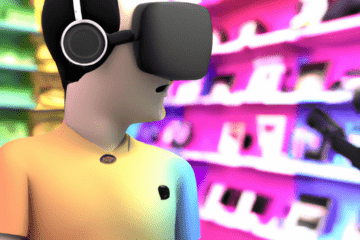Blockchain technology has been around for more than a decade, and its potential to revolutionize various industries has been widely acknowledged. One of the areas where blockchain technology has shown great promise is in the creation of Web3. In this blog, we will explore the role of blockchain technology in Web3 and its potential to transform the way we interact with the internet.

What is Web3
Web3 is the next generation of the internet, where the focus is on decentralization, privacy, and user ownership of data. It is a vision of a more secure, transparent, and trustless internet, where users have control over their data and can interact with each other in a peer-to-peer (P2P) manner. Web3 is based on blockchain technology, which enables the creation of decentralized applications (dApps) that can run on a P2P network.
Role of Blockchain in Web3
Blockchain technology plays a crucial role in Web3 by providing the foundation for creating decentralized applications. Decentralization is one of the key features of Web3, and it is made possible by blockchain technology. In a decentralized system, there is no central authority that controls the network. Instead, the network is run by a group of users who collectively validate transactions and maintain the integrity of the network.
Blockchain technology provides the following key features that enable decentralization in Web3:
Distributed ledger
Blockchain technology provides a distributed ledger that is shared among all the nodes in the network. This ledger is used to record all the transactions that occur on the network. Since the ledger is distributed, it is impossible for any single entity to manipulate the ledger.
Consensus mechanism
Blockchain technology uses a consensus mechanism to validate transactions on the network. In a decentralized system, there is no central authority that can validate transactions. Instead, the network relies on a group of users who collectively validate transactions. The consensus mechanism ensures that all the nodes in the network agree on the state of the ledger.
Smart contracts
Blockchain technology provides the ability to create smart contracts that can execute automatically when certain conditions are met. Smart contracts are self-executing programs that can facilitate the exchange of assets, such as cryptocurrencies, without the need for intermediaries.
Benefits of Web3
Web3 has several benefits over the current centralized model of the internet. Some of the key benefits of Web3 are:
Decentralization
Web3 is decentralized, which means that there is no central authority that controls the network. This makes the network more resilient to attacks and less prone to censorship.
Privacy
Web3 provides users with more privacy by allowing them to control their data. Users can choose to share their data with specific entities and revoke access at any time.
Trust
Web3 is based on blockchain technology, which provides a high level of trust. Since the ledger is distributed and immutable, it is impossible for any single entity to manipulate the ledger.
Interoperability
Web3 enables interoperability between different blockchains and dApps. This means that users can easily transfer assets between different dApps without the need for intermediaries.
Applications of Web3
Web3 has several applications in various industries, some of which are:
Finance
Web3 can transform the finance industry by providing a decentralized platform for trading cryptocurrencies and other assets. This can eliminate the need for intermediaries, such as banks, and reduce transaction fees.
Identity
Web3 can provide a decentralized platform for identity verification. Users can control their data and share it with specific entities without the need for a central authority.
Supply chain
Web3 can provide a transparent and secure platform for supply chain management. This can enable real-time tracking of goods and reduce the risk of fraud.
Gaming
Web3 can revolutionize the gaming industry by providing a decentralized platform for gaming. This can enable gamers to own their in-game assets and trade them with other gamers without the need for intermediaries.
Social media
Web3 can provide a decentralized platform for social media that prioritizes privacy and user ownership of data. This can eliminate the need for centralized platforms that collect and sell user data.
Challenges of Web3
Despite its potential, Web3 still faces several challenges that need to be addressed. Some of the key challenges of Web3 are:
Scalability
Web3 is still in its early stages, and scalability remains a significant challenge. The current blockchain technology has limited scalability, and it can only handle a limited number of transactions per second.
Usability
Web3 is still not user-friendly, and it can be challenging for non-technical users to interact with dApps.
Regulation
Web3 operates in a regulatory gray area, and it is unclear how governments will regulate decentralized platforms.
Security
Web3 is vulnerable to several security threats, including 51% attacks, smart contract vulnerabilities, and wallet hacks.
Conclusion
Blockchain technology plays a crucial role in Web3 by providing the foundation for creating decentralized applications. Web3 has several benefits over the current centralized model of the internet, including decentralization, privacy, trust, and interoperability. Web3 has several applications in various industries, but it still faces several challenges that need to be addressed. Despite these challenges, Web3 has the potential to transform the way we interact with the internet and create a more secure, transparent, and trustless ecosystem.


